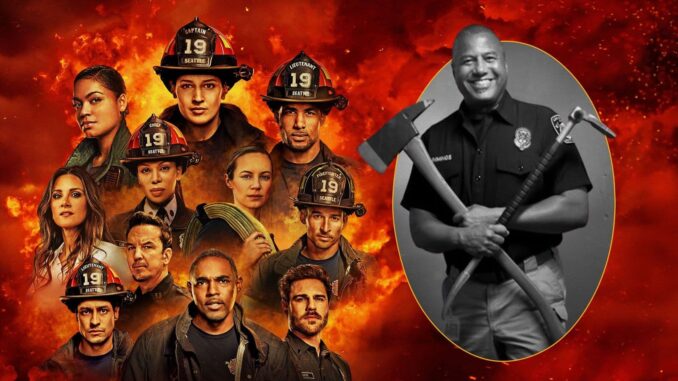
Firefighter Brian Cummings Reveals the Secret to Six Successful Seasons of Station 19
The roar of the fire, the urgent clang of the bell, the visceral thrill of saving a life – these are the potent ingredients that hook audiences to television dramas about first responders. Few series have navigated this perilous terrain with as much enduring success as Station 19, captivating viewers for six seasons and counting. Behind the adrenaline and intricate storylines, a quiet force often shapes the show's beating heart: the authentic experience of those who live it every day. For Station 19, a significant part of that success, according to those within the production, lies in the insights of individuals like Firefighter Brian Cummings, a decorated veteran whose unique perspective has subtly, yet profoundly, influenced the series. Cummings, in a rare interview, revealed that the "secret" isn't a single dramatic twist or a groundbreaking special effect, but rather the meticulous, unwavering commitment to grounding the extraordinary in the absolutely ordinary.
Cummings’ first revelation is that authenticity is the invisible scaffolding upon which all dramatic towers must be built. "People can spot a fake a mile away," he states, his voice calm but firm, like a seasoned incident commander. "When the equipment looks wrong, when the tactics don't make sense, it pulls you out of the story. My job was to make sure that the crackle of the blaze, the acrid bite of smoke – even if simulated – and the precise sweep of a hose line, all resonated with an undeniable truth." He illustrates this with a seemingly mundane example: the pre-shift truck check. While audiences might find it boring, Cummings insists on its importance. "It’s not just a scene filler; it’s a sacred ritual. Every bolt, every gauge, every piece of personal protective equipment (PPE) checked is a silent promise to your crew and to the people you’ll save. Showing that mundane diligence makes the heroism that follows believable. It anchors the spectacle in the daily grind." This commitment to operational veracity, from the correct way to don an SCBA mask to the nuanced dynamics of fire behavior, ensures that Station 19 resonates with those who truly know the job, lending it an invaluable layer of credibility.
Beyond the technical, Cummings emphasizes that the true fuel for Station 19's sustained fire is the human crucible of fear, loss, and unbreakable bonds. "The fire is just the catalyst," he explains, leaning forward, his eyes reflecting a lifetime of memories. "The real drama burns in the human heart, forged in the crucible of shared danger. My experience taught me that heroism isn't just rushing into a burning building; it's the glance you share with a colleague before you enter, the hand on a shoulder after a particularly tough call, the unspoken understanding that your life literally depends on theirs." He points to the often-overlooked emotional aftermath of incidents. "Shows often end when the fire is out. But for us, that's when a different kind of work begins – the processing, the camaraderie, the dark humor that helps us cope. Station 19 understands that the weight of the job doesn't just dissipate when the sirens fade. It explores the quiet moments of vulnerability, the arguments, the deep, familial love that forms within a firehouse, and those are the stories that truly stick with people." This focus on the psychological and emotional toll, on the ‘found family’ dynamic that defines many firehouses, elevates the show from mere action to profound human drama.
Finally, Cummings identifies the show's willingness to serve as a mirror to society’s struggles as a key to its longevity. Firefighters, he argues, are often the first on scene for far more than just fires. "We see the opioid crisis, homelessness, mental health emergencies, domestic violence – all of it," he says. "We're often the front line of society's deepest wounds. Station 19's success lies in its courage to not shy away from these realities. They weave these broader societal issues into the fabric of the characters’ lives and their calls, showing how these challenges impact not just the victims, but the responders themselves." By tackling subjects like racial injustice, gender inequality, and the complexities of trauma with nuance and sensitivity, the show transcends mere entertainment, becoming a platform for relevant social commentary. It transforms the firehouse into a microcosm of the world, reflecting the very real challenges communities face, and showcasing the silent, often unrecognized, role firefighters play in navigating them.
In essence, Firefighter Brian Cummings reveals that the "secret" to Station 19's six seasons of success isn't a singular grand gesture, but a composite of carefully observed details. It's the relentless pursuit of authenticity in the how, the profound exploration of humanity in the who, and the brave willingness to reflect the world in the why. By grounding its spectacular narratives in the gritty, emotional, and socially relevant truths of firefighting, Station 19 doesn't just tell stories about heroes; it illustrates the very real people beneath the helmets, ensuring its flame continues to burn brightly, season after season.
